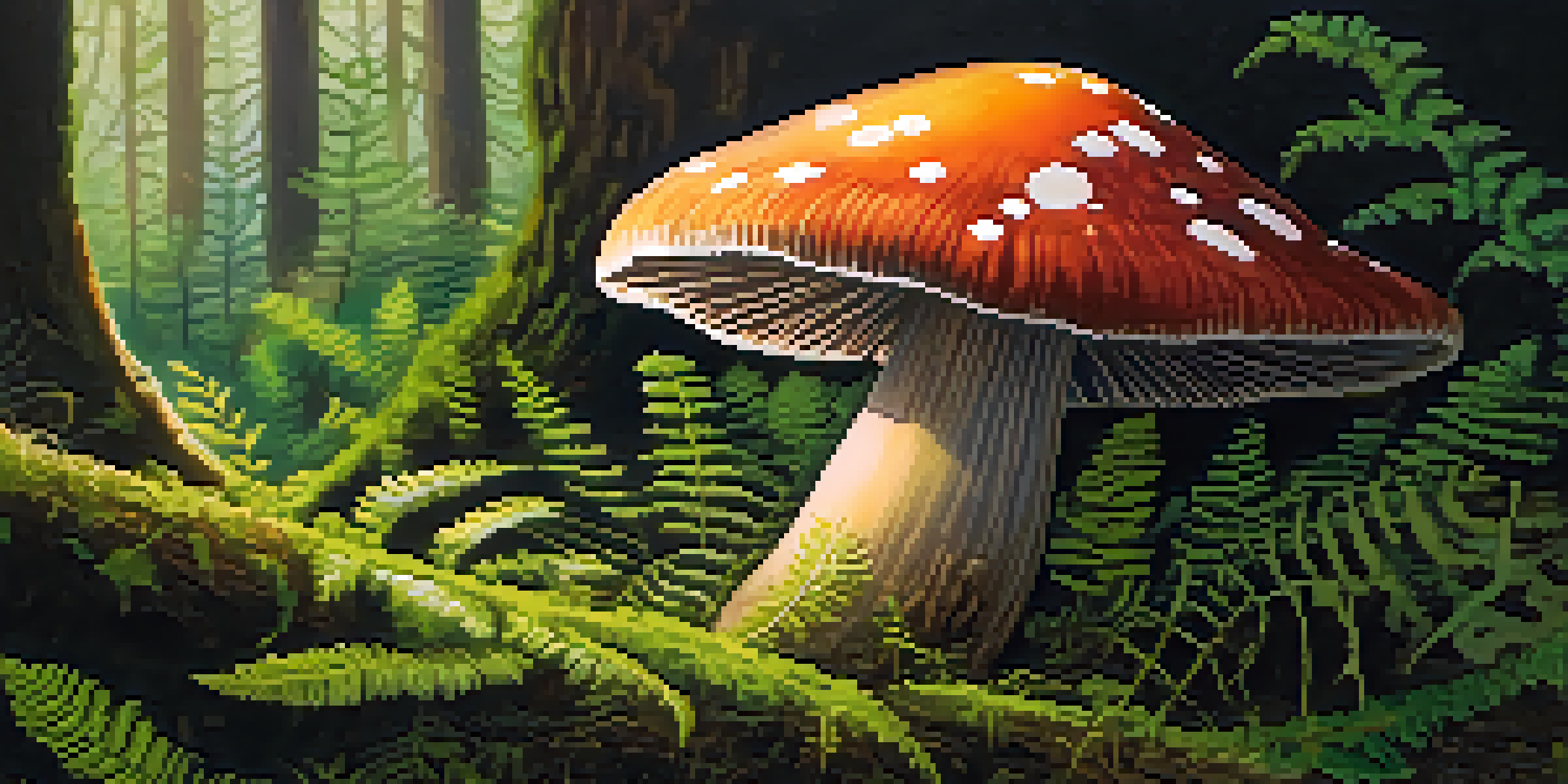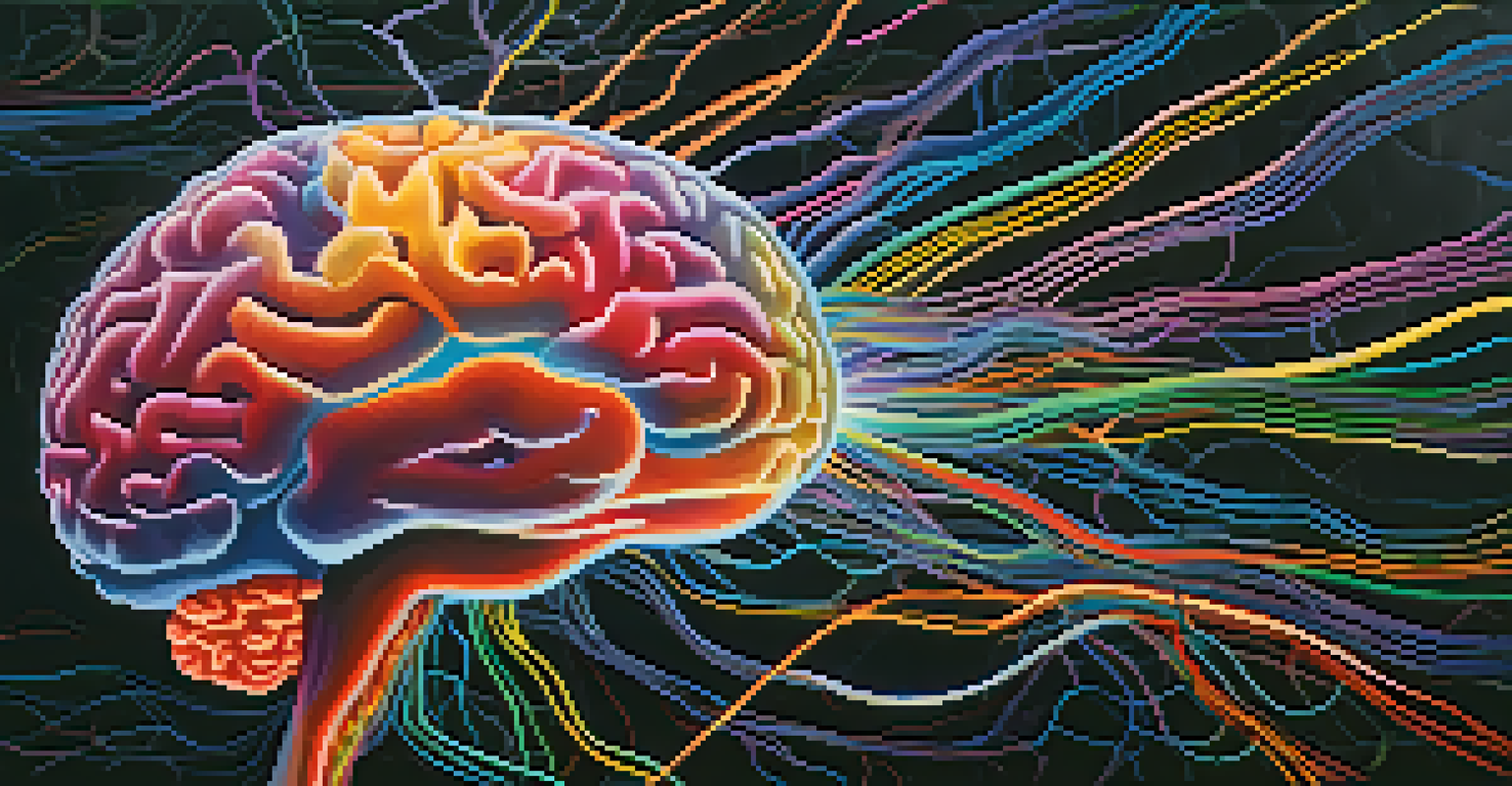The Connection Between Memory and Hallucinogenic Experiences

Understanding Hallucinogens: A Brief Overview
Hallucinogens are substances that alter perception, mood, and cognitive processes. Common examples include LSD, psilocybin (magic mushrooms), and mescaline. These substances can lead to profound changes in how individuals experience reality, often resulting in vivid visual and auditory hallucinations.
The mind is everything. What you think you become.
The effects of hallucinogens can vary widely from person to person. Some may feel euphoric and connected to their surroundings, while others might experience fear or anxiety. It's this variability that makes studying their impact on memory and cognition particularly fascinating.
Understanding the basic mechanics of how these substances work in the brain provides a foundation for exploring their effects on memory. By influencing neurotransmitters, particularly serotonin, hallucinogens can create unique experiences that may also impact how memories are formed and recalled.
The Brain's Memory Systems Explained
Memory is a complex system in our brains that involves various structures, including the hippocampus and the frontal cortex. The hippocampus plays a crucial role in forming new memories, while the frontal cortex is involved in the retrieval of these memories. Together, they help us navigate our world and learn from our experiences.

When we experience something, our brain encodes that information, storing it in various ways. This process can be altered by numerous factors, including emotions, attention, and even substances like hallucinogens. Understanding these mechanisms helps us grasp how hallucinogens might influence memory.
Hallucinogens Affect Memory Creation
These substances can alter how memories are formed, leading to unique but sometimes difficult-to-recall experiences.
Moreover, the interplay between memory systems and emotional responses is particularly important. Hallucinogens can evoke strong emotional reactions, which can enhance or distort the way memories are formed and recalled, adding another layer to this intriguing connection.
How Hallucinogens Affect Memory Formation
Research suggests that hallucinogens can significantly impact memory formation. During a hallucinogenic experience, the brain's normal processes for encoding memories can be altered. This may lead to a unique type of memory that is rich in sensory detail but difficult to retrieve later.
Memory is the treasure house of the mind wherein the monuments thereof are kept and preserved.
For instance, individuals may recall vivid images or emotions associated with their experiences while struggling to remember the context or the sequence of events. This phenomenon can create a disjointed but deeply impactful memory, often described as a 'mystical' experience.
Interestingly, some studies indicate that these altered memories may have therapeutic potential. By enhancing certain memories or facilitating new perspectives, hallucinogens could help individuals process trauma or anxiety more effectively.
The Role of Emotion in Hallucinogenic Memories
Emotions play a pivotal role in how we form and recall memories, and this is especially true during hallucinogenic experiences. The intense emotions elicited by these substances can create strong, lasting memories, often referred to as 'emotionally charged memories.'
For example, someone might experience a profound sense of interconnectedness and love while under the influence of a hallucinogen, leading to a memory that feels particularly significant. These emotional memories can shape an individual's worldview and inspire personal growth.
Emotional Impact on Memories
Intense emotions during hallucinogenic experiences can create strong, lasting memories that significantly shape an individual's perspective.
Conversely, negative emotions can also be amplified during hallucinogenic experiences, resulting in distressing memories. Understanding this duality is crucial for those considering therapeutic uses of hallucinogens, as both positive and negative experiences can leave lasting impressions.
Memory Recall and Hallucinogenic Experiences
Hallucinogenic experiences can influence memory recall in various ways. Some individuals report that memories from their past become more accessible during these experiences, often leading to unexpected insights or realizations. This phenomenon can facilitate emotional healing and self-discovery.
However, there's also the risk of reconstructed memories being distorted. The altered state of consciousness might lead someone to remember events inaccurately or blend memories from different times and places, creating a colorful but potentially misleading narrative.
This phenomenon highlights the fluid nature of memory itself—how it's not just a static record of past events but rather a dynamic process influenced by our current state of mind, including altered states induced by hallucinogens.
Potential Therapeutic Applications of Hallucinogens
The connection between memory and hallucinogenic experiences is paving the way for exciting therapeutic applications. Recent research has shown promise in using substances like psilocybin for treating conditions such as PTSD, depression, and anxiety. By facilitating profound emotional experiences, these substances can help individuals confront and process traumatic memories.
Therapists are exploring how carefully guided hallucinogenic experiences can lead to breakthroughs in memory recall and emotional healing. The idea is that the unique memory formations experienced during these sessions can foster a new understanding of past traumas.
Therapeutic Uses of Hallucinogens
Research shows potential for hallucinogens in treating conditions like PTSD and anxiety by facilitating emotional healing and memory processing.
While the field is still in its infancy, early results are encouraging. As we continue to study the connections between memory, emotion, and hallucinogenic experiences, we may uncover new paths to healing and personal growth.
Cautions and Considerations in Hallucinogen Use
While the potential benefits of hallucinogens are intriguing, it's crucial to approach their use with caution. Not everyone will respond positively to these substances, and adverse reactions can occur, including anxiety, paranoia, or distressing hallucinations. Understanding one's mental health history is essential before considering hallucinogen use.
Additionally, the setting in which hallucinogens are taken can greatly influence the experience and its outcomes. A supportive, controlled environment is vital for minimizing risks and maximizing the potential for positive experiences, especially in therapeutic contexts.

Education and guidance from trained professionals can help ensure a safer exploration of the connections between memory and hallucinogenic experiences. With the right approach, individuals may navigate their journeys with greater awareness and intention.